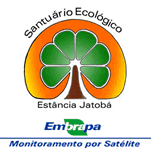

 |

|
|
Home |
Project |
History |
Localization |
Perception |
Publications |
Maps |
WebGIS |
Team |
|
 |
THE HISTORICAL AND GLOBAL CONTEXT
The wheel, whose traction drives modern farming, was invented six thousand years ago in Mesopotamia. Inhabitants of that place also devised writing, anticipating this page. Their mathematics takes the measure of our lifetime. As then, hours and minutes are parceled into 60's. In spite of the utility and permanence of their ideas, little grows on their land today. The Hebrew prophet Moses led the Israelites into a "land of brooks of water, of fountains and springs, flowing forth in valleys and hills; a land of wheat and barley, and vines and fig trees and pomegranates, a land of olive trees and honey." Today the sun scorches a barren garden. Wind sweeps over exposed bedrock. Useable soil clings only to narrow valleys. Out of 7th Century BC Greek agriculture, practiced by autonomous farmers on private homesteads, emerged communities of equals. Citizens were independent, practical, bold and frugal. While retaining a healthy skepticism, they were also capable of feeling shame and compassion. That is, they could be reliable and fair. They took responsibility for their actions and circumstances. They defended their lands on the battlefield, their opinions in the assembly. Self-reliant, honest, industrious, they formed constitutional, locally represented government. Common sense adaptations to the realities of agrarian life, not monastic philosophic contemplation, led to the early values and political structures of western civilization. A few hundred years later, Plato lamented that the mountains of Attica were able to keep "nothing but bees, but which were clothed, not so very long ago, with timber suitable for roofing the very large buildings." Rainfall that had previously been retained was "allowed to flow over the denuded surface to the sea." Humans, seeking to better their lot and even with the best of intentions, undercut the values upon which living well requires. To this day they defile their homelands. In the last one hundred years, a thousand years worth of American topsoil has blown and washed away. Worldwide, energy spent in the 20th Century was ten times more than in the preceding 1000 years. Carbon dioxide emissions in the atmosphere have increased 13 times. Today, more than half of those who live in cities are said to breathe unhealthy amounts of sulfur dioxide, which has also damaged 80% of European forests alone. Along with increased soil loss, energy waste and air pollution, biodiversity is squandered, rain forests cut and burned, water spoiled and spent. Human relations are being degraded, social injustice is spreading and just plain ugliness abounds. In spite of the bleak picture, some stemming of decadence has occurred. In fact, there have always been touchstones of good sense in the cascade of negligence. Even as urban and global demands were destroying the pre-Christian Greek environment, individual Maya farmers in the Yucatan Peninsula were utilizing ecologically sound principles in growing their crops. These practices continued for a thousand years. Local solutions with global vision have played and will continue to play an important role. This project is meant to discover, test, and demonstrate intelligent conservation, sustainable agriculture, sensible building and clean energy practices.
|